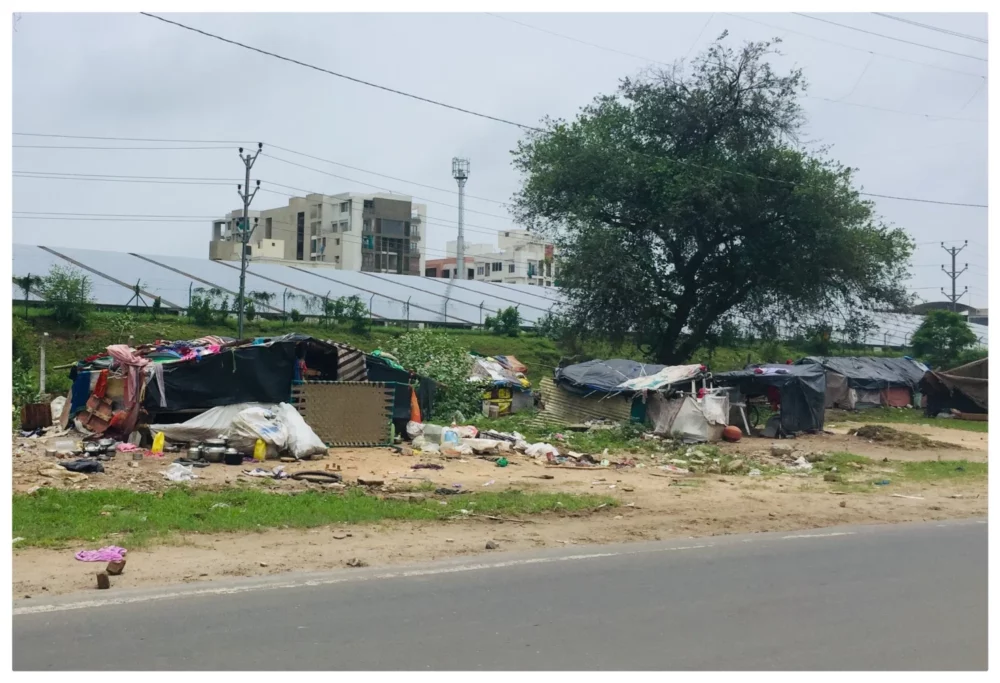The affordability, diversity and availability of housing in Austin is more strained than ever before. The Covenant Mission Committee wants to help.
“Housing is such a huge issue in our city,” said Covenant Director of Mission Whitney Bell. She explained that when the Mission Committee received $200,000 from Session, committee members knew they wanted to put the majority of the funds toward housing. Session entrusted the Mission Committee to spend the money, which was a portion of Covenant’s income that the church did not spend in the 2021 calendar year, to direct the funds in a way that demonstrated how the church is a love letter to the city.
“Last year we put money toward a few organizations doing amazing work with homeless,” Whitney said. “This year, the team considered what our church can do to prevent homelessness.”
Preventing homelessness is often referred to as “diversion.” Whitney explained, “We wanted to find out who is helping to divert people from the path toward eviction. Who is doing the work to prevent homelessness?”
Covenant Mission Committee member Melissa Gaskill challenged the group to think about it this way. “For the Mission Committee to find ways to keep people from becoming homeless means that ultimately we can help more people,” she said. “It is more sustainable to find solutions to the causes of the problem. It also spares people the trauma of losing their housing in the first place.”
Melissa continued. “A great anecdote from Alan Graham of Mobile Loaves and Fishes helps explain: ‘You’re standing by a river pulling out people who fell in and are drowning, but they just keep coming. At some point it makes more sense to go upstream and try to stop people from falling in the river in the first place.’”
The Significance of Diversion
“If an eviction goes on someone’s record, it is virtually impossible for them to find housing,” Whitney said. “It stays on their record for seven years and almost no one will rent to them. Not only are we trying to keep people housed, we are also trying to keep them from getting this stain on their record.”
Knowing the eviction process helps shed light on the problem. “In the first step, renters get a notice to vacate,” Whitney said. “That lets renters know the landlord wants to evict them. Nothing goes on their record at that time and we can still do some work.
“After that, the landlord has to file the eviction papers with the court; a constable delivers the eviction notice to the renter. There’s now a legal case in their name. That can still be dropped,” she continued. “We just helped advocate for that and our client won. It’s not on his record.”
Finally, Whitney said, the renter goes to court, where they can win or lose. “Most people don’t have access to lawyers, and they don’t know about Austin Tenants Council. They don’t know how to advocate for themselves.”


Who is Doing the Work to Prevent Homelessness?
As he did last year, Mission Committee member Paul Mowry took the lead on providing information on how different organizations help prevent homelessness and/or aid Austin’s homeless. Paul is chair of the board of the directors of the Religious Coalition to Assist the Homeless (RCAH), a group that provides grant to organizations that work on behalf of Austin’s homeless. RCAH is an unusual partnership between the city of Austin and nearly 150 places of worship created originally to reduce the population of homeless downtown. Through a 1997 city ordinance, churches are allowed to divert the portion of their utility bills designated as “drainage fees” to the coalition.
RCAH’s 2022 total grant budget was $835,000, which helps to fund 21 organizations that work on behalf of Austin’s homeless. RCAH requires the organizations it supports to provide reports of what they doing. “It’s really awesome because they do the research for us.” Whitney said.
After going through the reports, Paul found two strong candidates who met the committee directive to prevent homelessness: Foundation for the Homeless (FFH) and Family Eldercare (FE).
Foundation for the Homeless
“The Foundation for the Homeless has a special fund to address families at risk of losing their homes for reasons that can be handled quickly, — back rent, unpaid utilities, other fees, etc.,” Paul said. “Since many government-sourced funds carry restrictions, FFH can’t use them for these purposes. Covenant’s funds can be unrestricted.”
Whitney added that FFH provides case management to help families avoid this situation in the future. “This is the big kicker,” Whitney said. “In order to get any assistance, the families have to do this case work with a social worker who actually helps them look at why they are in the situation. ‘Do we need to move to an apartment that is more affordable? Do we need to look at how we’re spending money? Are we actually getting all the benefits we qualify for — Medicaid, SNAP, CHIP?’ These things help make sure they’re getting everything they need to get on a path to stay in their homes. We’ve seen over and over again that if people can see where things are going wrong, they can stay housed.”
FFH leaders had a list of 22 households they wanted to serve, requesting the amount it would cost to take care of everything on each family’s list. FFH Executive Director Monty Osburn recently communicated to the committee that, since receiving the grant in April, FFH has used it to address the needs of all 22 households, or 74 individuals.


Family Eldercare
Family Eldercare (FE), which serves adults 55 and over and those with disabilities, also received Covenant funds. FE has a long waiting list of individuals who need help to avert homelessness.
“Some of the city’s most vulnerable folks are elderly,” Whitney said. “This scenario happens all the time: Elderly people on fixed incomes live in apartments and the rent goes up. They might try to get jobs or find some way to meet the increased rent, but usually, they can do nothing about it and end up in places where they are facing eviction. Family Eldercare does great casework management to help people find housing, and they also do quite a bit of diversion.”
Before FE could address its clients’ housing needs, the organization needed to hire a case manager. Family Eldercare was eligible for $64,000 in Federal Emergency Rental Assistance Program funds if matching funds could be located by August. Covenant gave the organization $64,000, freeing the federal funds to cover a year’s cost ($64,000) to hire a new case manager. The $64,000 in Covenant funds provided for back rent and other expenses needed to keep approximately 21 seniors from being evicted.
“Since receiving Covenant’s grant, FFH has hired and trained a case manager, met the complete needs of four clients and started the process for 10 more,” Paul reported, providing two examples of Family Eldercare clients:
- An elderly woman lives with her children so they can care for her and she can avoid going to a nursing home. The funding paid for installation of a grab bar and covered medical copays.
- An elderly, hearing-impaired woman lives with her husband, and they receive only a monthly Social Security check for $550. Covenant funding will cover rent payments through August, when they qualify for additional government funding.
FE Development Director Brittany Baize estimated that Covenant funds will benefit 35 clients by the time they are spent.
Success Begets Success
Covenant has been working with CommunityFirst! for several years. The highly successful village is comprised of affordable, permanent housing and a supportive community for men and women coming out of chronic homelessness.
A recently-launched CommunityFirst! capital campaign will fund a two-pronged expansion of its community. First, additional micro-homes will be constructed on land acquired across from its existing facility. Second, CommunityFirst! acquired land on Burleson Road, where it will work with Foundation Communities to construct a 100-unit apartment building for family housing on the front of this tract. On the tract’s back portion, CommunityFirst! will develop micro-homes comparable to its existing community.
The Covenant Mission Committee gave $61,000 to this capital campaign, half of which will be matched by the Michael and Susan Dell Foundation. “Both Foundation Communities and CommunityFirst! have proven track records of success,” Whitney said, pointing to statistics showing CommunityFirst! Village has a greater than 80 percent client retention success rate.
The Rest of the Story
These already-mentioned contributions aim to relieve some of Austin’s housing issues and make up three-quarters of the Covenant Mission Committee’s extra funds. The remaining $50,000 will go to VECINA, an organization that seeks to empower immigrant justice advocates by mentoring attorneys, educating communities and mobilizing volunteers. VECINA recognizes that many attorneys are looking for ways to help but don’t have the tools necessary to provide effective representation. Therefore, the organization offers training to equip pro bono attorneys with the necessary knowledge and skills to provide advocacy.
The grant will go toward a number of programs at the organization while they work on securing additional funding. Lindsay Gray, Chief Executive Officer of VECINA, said the $50,000 grant “would relieve a huge burden for us and be a game changer.”
Stay tuned! More information about how Covenant attorneys are getting involved in VECINA is coming soon!




